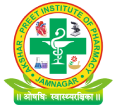
- Clinical Pharmacy: Pharmacists play a vital role in patient care by collaborating with healthcare professionals to optimize medication therapy and ensure safe and effective use of medications.
- Community Pharmacy: Pharmacies in communities provide essential services like dispensing medications, counseling patients on proper medication use, and offering over-the-counter products and health advice.
- Hospital Pharmacy: Pharmacists in hospitals manage medication dispensing, provide drug information to healthcare professionals, and participate in patient care teams to ensure appropriate medication therapy.
- Research and Development: Pharmacy professionals contribute to pharmaceutical research and development by working in laboratories, conducting clinical trials, and developing new medications to address unmet medical needs.
- Regulatory Affairs: Pharmacists are involved in regulatory affairs, ensuring compliance with laws and regulations governing the pharmaceutical industry, drug approval processes, and safety standards.
- Pharmaceutical Industry: Pharmacists work in various roles within the pharmaceutical industry, including drug manufacturing, quality control, marketing, and sales.
- Academia: Many pharmacists pursue careers in academia, teaching future pharmacists, conducting research, and contributing to advancements in pharmaceutical sciences.
- Global Health and International Development: A foreign aspect of pharmacy involves global health initiatives and international development efforts. Pharmacists contribute to improving healthcare systems, access to essential medications, and public health programs in developing countries through initiatives such as medication supply chain management, disease prevention, and health education.
